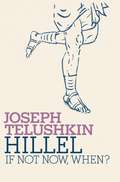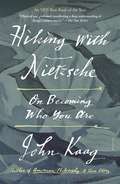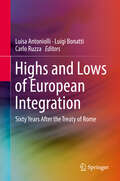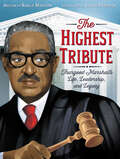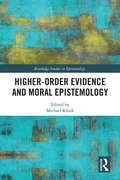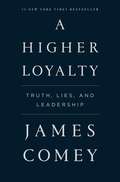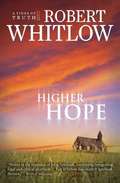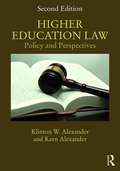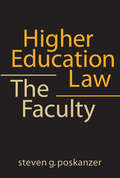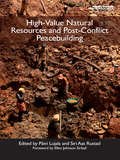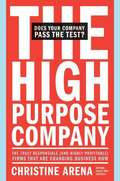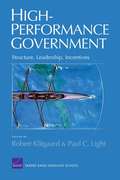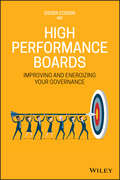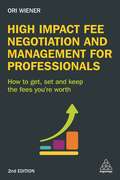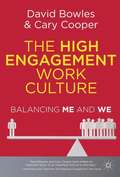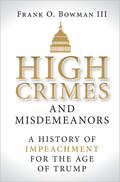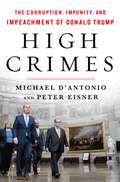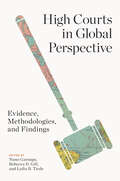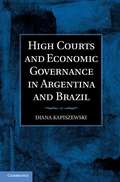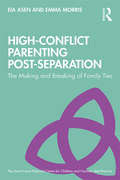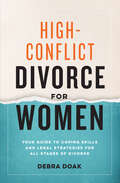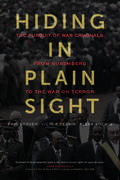- Table View
- List View
Hillel: If Not Now, When?
by Joseph Telushkin"What is hateful unto you, do not do unto your neighbor. That is the whole Torah, all the rest is commentary. Now, go and study." This is the most famous teaching of Hillel, one of the greatest rabbis of the Talmudic era. What makes it so extraordinary is that it was offered to a gentile seeking conversion. Joseph Telushkin feels that this Talmudic story has great relevance for us today. At a time when religiosity is equated with ritual observance alone, when few Jews seem concerned with bringing Jewish teachings into the world, and when more than 40 percent of Jews intermarry, Judaism is in need of more of the openness that Hillel possessed two thousand years ago. Hillel's teachings, stories, and legal rulings can be found throughout the Talmud; many of them share his emphasis on ethical and moral living as an essential element in Jewish religious practice, including his citing the concept of tikkun olam repairing the world) as a basis for modifying Jewish law. Perhaps the most prominent rabbi and teacher in the Land of Israel during the reign of Herod, Hillel may well have influenced Jesus, his junior by several decades. In a provocative analysis of both Judaism and Christianity, Telushkin reveals why Hillel's teachings about ethics as God's central demand and his willingness to encourage the process of conversion began to be ignored in favor of the stricter and less inclusive teachings of his rabbinic adversary, Shammai. Here is a bold new look at an iconic religious leader.
Hiking with Nietzsche: On Becoming Who You Are
by John KaagOne of Lit Hub's 15 Books You Should Read in SeptemberA revelatory Alpine journey in the spirit of the great Romantic thinker Friedrich NietzscheHiking with Nietzsche: Becoming Who You Are is a tale of two philosophical journeys—one made by John Kaag as an introspective young man of nineteen, the other seventeen years later, in radically different circumstances: he is now a husband and father, and his wife and small child are in tow. Kaag sets off for the Swiss peaks above Sils Maria where Nietzsche wrote his landmark work Thus Spoke Zarathustra. Both of Kaag’s journeys are made in search of the wisdom at the core of Nietzsche’s philosophy, yet they deliver him to radically different interpretations and, more crucially, revelations about the human condition.Just as Kaag’s acclaimed debut, American Philosophy: A Love Story, seamlessly wove together his philosophical discoveries with his search for meaning, Hiking with Nietzsche is a fascinating exploration not only of Nietzsche’s ideals but of how his experience of living relates to us as individuals in the twenty-first century. Bold, intimate, and rich with insight, Hiking with Nietzsche is about defeating complacency, balancing sanity and madness, and coming to grips with the unobtainable. As Kaag hikes, alone or with his family, but always with Nietzsche, he recognizes that even slipping can be instructive. It is in the process of climbing, and through the inevitable missteps, that one has the chance, in Nietzsche’s words, to “become who you are."
Highs and Lows of European Integration: Sixty Years After The Treaty Of Rome
by Carlo Ruzza Luisa Antoniolli Luigi BonattiIn light of Europe’s prolonged state of crisis, this book reassesses the challenges and prospects of the European integration process. Scholars from diverse disciplines reflect on various types of integration by analyzing political, economic and sociological variables, while also taking legal and cultural constraints into account. Readers will learn about the dilemmas and challenges of the European transformation process as well as political reforms to overcome these challenges. The book is divided into four parts, the first of which discusses the external dimension of the European Union, including a review of development aid policies and EU foreign policy. In turn, the second part focuses on institutional change and asymmetrical integration in the EU. The third part is devoted to the rise of populism and nationalism, including an analysis of the role of civil society organizations in the Brexit. In closing, the last part highlights the crisis of the Euro as a symbol of European integration and the emerging social and economic divide between countries of the North and South.
The Highest Tribute: Thurgood Marshall's Life, Leadership, and Legacy
by Kekla MagoonA brilliant picture book biography about Thurgood Marshall, who fought for equality during the Civil Rights Movement and served as the first Black justice on the Supreme Court, from Coretta Scott King Honor winners Kekla Magoon and Laura Freeman.Growing up in Baltimore, Thurgood Marshall could see that things weren’t fair. The laws said that Black and white people couldn’t use the same schools, parks, or water fountains.When Thurgood had to read the Constitution as punishment for a prank at school, his eyes were opened. It was clear to him that Jim Crow laws were wrong, and he was willing to do whatever it took to change them.His determination to make sure all Americans were treated equally led him to law school and then the NAACP, where he argued cases like Brown v. Board of Education in front of the Supreme Court. But to become a Justice on the highest court in the land, Thurgood had to make space for himself every step of the way.Readers will be inspired by Kekla Magoon’s concise text and Laura Freeman’s luminous illustrations, which bring Thurgood Marshall’s incredible legacy and achievements to life.* An SLJ Best Book of the Year * A Bank Street Best Book of the Year * A Jane Addams Children's Book Award Finalist * A Texas Topaz Nonfiction Selection * Wisconsin State Reading Association’s 2022 Picture This Recommendation List * Indiana Authors Award Shortlist *
Higher-Order Evidence and Moral Epistemology (Routledge Studies in Epistemology)
by Michael KlenkThis book offers a systematic look at current challenges in moral epistemology through the lens of research on higher-order evidence. Fueled by recent advances in empirical research, higher-order evidence has generated a wealth of insights about the genealogy of moral beliefs. Higher-Order Evidence and Moral Epistemology explores how these insights have an impact on the epistemic status of moral beliefs. The essays are divided into four thematic sections. Part I addresses the normative significance of higher-order evidence for moral epistemology. Part II covers the sources of higher-order evidence in moral epistemology, such as disagreement and moral testimony, for both individuals and groups. The essays in Part III discuss permissible epistemic attitudes regarding a body of moral evidence, including the question of how to determine the permissibility of such attitudes. Finally, Part IV examines the relevance of higher-order evidence for phenomena of practical concern, such as fundamentalist views about moral matters. This volume is the first to explicitly address the implications of higher-order evidence in moral epistemology. It will be of interest to researchers and advanced graduate students working in epistemology and metaethics.
A Higher Loyalty: Truth, Lies, and Leadership
by James Comey<P>In his book, former FBI director James Comey shares his never-before-told experiences from some of the highest-stakes situations of his career in the past two decades of American government, exploring what good, ethical leadership looks like, and how it drives sound decisions. His journey provides an unprecedented entry into the corridors of power, and a remarkable lesson in what makes an effective leader. <P>Mr. Comey served as director of the FBI from 2013 to 2017, appointed to the post by President Barack Obama. He previously served as U.S. attorney for the Southern District of New York, and the U.S. deputy attorney general in the administration of President George W. Bush. From prosecuting the Mafia and Martha Stewart to helping change the Bush administration's policies on torture and electronic surveillance, overseeing the Hillary Clinton e-mail investigation as well as ties between the Trump campaign and Russia, Comey has been involved in some of the most consequential cases and policies of recent history.
Higher Hope (Tides of Truth, Book #2)
by Robert WhitlowTami Taylor faces impossible challenges in life, law, and love--until she discovers a higher hope. A libel case will require some legal maneuvering and the summoning of a greater hope than Tami has ever known.
Higher Education Law: Policy And Perspectives
by Klinton Alexander Kern AlexanderThis fully revised and updated textbook weaves law into its historical, political, and sociological context, while providing clear explanation of the law as it applies to American colleges and universities. This text draws exclusively on federal and state cases emerging from campuses and includes helpful pedagogical elements--such as chapter outlines, questions for discussion, side bars, text boxes, research aids, and summation of law--to equip readers with the tools and knowledge to effectively respond in an environment of increasing litigation. Addressing a gap in the literature, this new edition provides a comprehensive and accessible understanding of the latest laws relevant to higher education and student affairs administrators.
Higher Education Law: The Faculty
by Steven G. Poskanzer"Do we need to talk to our lawyers about this?" "What do the attorneys say?" "Why didn't you get the lawyers involved before now?"Just about every department chair and dean, certainly every provost and president, and an ever-increasing number of faculty find themselves asking—or being asked—such questions. Dealing with issues ranging from academic freedom to job security and faculty discipline, lawyers, legal requirements, and lawsuits has become an established part of the apparatus of American higher education. Higher Education Law was written to help faculty and administrators navigate critical legal issues and avoid potential legal pitfalls. Drawing on his experience as university counsel, administrator, and teacher at a number of institutions, Steven G. Poskanzer explains the law as it pertains to faculty activities both inside and outside the academy, including faculty roles as scholars, teachers, and members of institutional communities, as well as employees and public citizens. In each of these areas, he expands his discussion of cases and decisions to set out his own views both on the current status of the law and how it is likely to evolve.
High-Value Natural Resources and Post-Conflict Peacebuilding (Post-Conflict Peacebuilding and Natural Resource Management)
by Päivi Lujala Siri Aas RustadFor most post-conflict countries, the transition to peace is daunting. In countries with high-value natural resources – including oil, gas, diamonds, other minerals, and timber –the stakes are unusually high and peacebuilding is especially challenging. Resource-rich post-conflict countries face both unique problems and opportunities. They enter peacebuilding with an advantage that distinguishes them from other war-torn societies: access to natural resources that can yield substantial revenues for alleviating poverty, compensating victims, creating jobs, and rebuilding the country and the economy. Evidence shows, however, that this opportunity is often wasted. Resource-rich countries do not have a better record in sustaining peace. In fact, resource-related conflicts are more likely to relapse. Focusing on the relationship between high-value natural resources and peacebuilding in post-conflict settings, this book identifies opportunities and strategies for converting resource revenues to a peaceful future. Its thirty chapters draw on the experiences of forty-one researchers and practitioners – as well as the broader literature – and cover a range of key issues, including resource extraction, revenue sharing and allocation, and institution building. The book provides a concise theoretical and practical framework that policy makers, researchers, practitioners, and students can use to understand and address the complex interplay between the management of high-value resources and peace. High-Value Natural Resources and Post-Conflict Peacebuilding is part of a global initiative led by the Environmental Law Institute (ELI), the United Nations Environment Programme (UNEP), the University of Tokyo, and McGill University to identify and analyze lessons in natural resource management and post-conflict peacebuilding. The project has generated six edited books of case studies and analyses, with contributions from practitioners, policy makers, and researchers. Other books in the series address land; water; livelihoods; assessing and restoring natural resources; and governance.
The High-Purpose Company
by Christine ArenaIn The High-Purpose Company, corporate strategist and researcher Christine Arena shows that some extraordinary companies are driven by purpose, whereas others simply pretend to be. The High-Purpose Company draws a clear line in the sand, enabling readers to easily distinguish between these two groups--and make a giant leap forward. Using a groundbreaking methodology, Arena and her research team conducted thousands of hours of analysis on the corporate social responsibility (CSR) practices of 75 well-known firms. The surprising results of the study defy long-held myths, rewrite rules, reframe strategic priorities, and reveal a new breed of business. Real CSR is about change, not charity. The High-Purpose Company uncovers this and other truths, and guides readers through the step-by-step process that is currently embraced by the world's most forward-thinking firms.
The High-Purpose Company: The TRULY Responsible (and Highly Profitable) Firms That Are Changing Business Now
by Christine ArenaExamines the CSR (corporate social responsibility) movement with case studies of success and failure along with new perspectives in the area.
The High-Purpose Company
by Christine ArenaIn The High-Purpose Company, corporate strategist and researcher Christine Arena shows that some extraordinary companies are driven by purpose, whereas others simply pretend to be. The High-Purpose Company draws a clear line in the sand, enabling readers to easily distinguish between these two groups--and make a giant leap forward. Using a groundbreaking methodology, Arena and her research team conducted thousands of hours of analysis on the corporate social responsibility (CSR) practices of 75 well-known firms. The surprising results of the study defy long-held myths, rewrite rules, reframe strategic priorities, and reveal a new breed of business. Real CSR is about change, not charity. The High-Purpose Company uncovers this and other truths, and guides readers through the step-by-step process that is currently embraced by the world's most forward-thinking firms.
High-Performance Government
by John Dumond Robert Klitgaard Paul C. LightIn 2003, the National Commission on the Public Service, chaired by Paul Volcker, issued a report detailing problems within the federal government today and recommending changes in its organization, leadership, and operations. This book suggests practical ways to implement the recommendations and defines a research agenda for the future. Thirteen essays address the primary problem areas identified by the Volcker Commission, and the commission report itself is included.
High Performance Boards: Improving and Energizing your Governance
by Didier CossinA comprehensive guide to transforming boards and achieving best-practice governance in any organisation. When practising good governance, the board is the vital driver of organizational success, while fostering positive social impact and economic value creation. At all levels, executives around the world are faced with complexities rising from disruptive business models, new technologies, socio-economic changes, shifting political circumstances, and an array of other sources. High Performance Boards is the comprehensive manual for attaining best-in-class governance, offering pragmatic guidance on improving board quality, accountability, and performance. This authoritative volume identifies the four dimensions, or pillars, which are crucial for establishing and maintaining best-practice boards: the people involved, the information architecture, the structures and processes, and the group dynamics and culture of governance. This methodology can be applied to any board in the world, corporate or non-profit organization, regardless of size, sector, industry, or context. Readers are introduced to a fictitious senior board member – an amalgamation of board members from well-known organisations – and follow her as she successfully handles real-life challenges with effective governance. Drawn from the author’s 20 years of practice and confidential work with boards across the world, this book: Demonstrates how high-performance boards innovate and refine their practices Discusses examples of board failures and challenges, including case studies from both for-profit and non-profit organisations including international organizations and state-owned agencies or even ministries Provides a proven framework to create best-in-class governance Includes a companion website featuring tools for board assessment and board practice High Performance Boards has inspired more than 3000 board members around the world. This book is essential reading for professionals and managers interested in governance and board members, senior managers, investors, lawyers, and students of governance.
High Impact Fee Negotiation and Management for Professionals: How to Get, Set, and Keep the Fees You're Worth
by Ori WienerThe pressure on professional service firms and their professionals has never been higher. If you want to be able to charge the fees you know reflect the value you bring, you need the high impact, practical guidance that High Impact Fee Negotiation and Management for Professionals offers. Learn how to apply a powerful, consistent approach to make sure the 'golden triangle' of setting the price, getting the price and keeping the price works in your favour. Develop a strategy to enhance the profitability of your engagements through pricing, fee structuring, scoping, and negotiating. Understand the key steps management need to take to embed supporting processes and the appropriate culture. Expert negotiator, PSF consultant and trainer Ori Wiener's invaluable guide gives you the skills, tips and techniques that have been proven to deliver results.
The High Engagement Work Culture
by David Bowles Cary CooperThe 2008 crisis set off a systemic panic which almost engulfed the world's financial system. Through a lens of sustainability this book examines how organisations can explore a new business culture today. Drawing from real-life examples and new ideas Bowles and Cooper discuss how organisations can move from 'me' to 'we'.
High Crimes and Misdemeanors: A History of Impeachment for the Age of Trump
by Frank O. Bowman IIIFor the third time in forty-five years, America is talking about impeaching a president, but the impeachment provisions of the American constitution are widely misunderstood. In High Crimes and Misdemeanors, constitutional scholar Frank O. Bowman, III offers unprecedented clarity to the question of impeachment, tracing its roots to medieval England through its adoption in the Constitution and 250 years of American experience. By examining the human and political history of those who have faced impeachment, Bowman demonstrates that the Framers intended impeachment to be a flexible tool, adaptable to the needs of any age. Written in a lively, engaging style, the book combines a deep historical and constitutional analysis of the impeachment clauses, a coherent theory of when impeachment should be used to protect constitutional order against presidential misconduct, and a comprehensive presentation of the case for and against impeachment of President Trump. It is an indispensable work for the present moment.
High Crimes: The Corruption, Impunity, and Impeachment of Donald Trump
by Michael D'Antonio Peter EisnerTwo award-winning journalists offer the most comprehensive inside story behind our most significant modern political drama: the House impeachment of Donald Trump. Having spent a year essentially embedded inside several House committees, Michael D'Antonio and Peter Eisner draw on many sources, including key House leaders, to expose the politicking, playcalling, and strategies debated backstage and to explain the Democrats' successes and apparent public failures during the show itself.High Crimes opens with Nancy Pelosi deciding the House should take up impeachment, then, in part one, leaps back to explain what Ukraine was really all about: not just Joe Biden and election interference, but a money grab and oil. In the second part, the authors recount key meetings throughout the run up to the impeachment hearings, including many of the heated confrontations between the Trump administration and House Democrats. And the third part takes readers behind the scenes of those hearings, showing why certain things happened the way they did for reasons that never came up in public.In the end, having illuminated every step of impeachment, from the schemes that led Giuliani to the Ukraine in 2016 to Fiona Hill's rebuking the Republicans' conspiracy theories, High Crimes promises to be Trump's Final Days.
High Courts in Global Perspective: Evidence, Methodologies, and Findings (Constitutionalism and Democracy)
by Aylin Aydin-Cakir Tanya Bagashka Clifford Carrubba Amanda Driscoll Joshua Fischman Joshua Fjelstul Tom Ginsburg Melinda Gann Hall Chris Hanretty Lori Hausegger Diana Kapiszewski Lewis A. Kornhauser Dominique H. Lewis Chien-Chih Lin Sunita Parikh Russell Smyth Christopher ZornHigh courts around the world hold a revered place in the legal hierarchy. These courts are the presumed impartial final arbiters as individuals, institutions, and nations resolve their legal differences. But they also buttress and mitigate the influence of other political actors, protect minority rights, and set directions for policy. The comparative empirical analysis offered in this volume highlights important differences between constitutional courts but also clarifies the unity of procedure, process, and practice in the world’s highest judicial institutions.High Courts in Global Perspective pulls back the curtain on the interlocutors of court systems internationally. This book creates a framework for a comparative analysis that weaves together a collective narrative on high court behavior and the scholarship needed for a deeper understanding of cross-national contexts. From the U.S. federal courts to the constitutional courts of Africa, from the high courts in Latin America to the Court of Justice of the European Union, high courts perform different functions in different societies, and the contributors take us through particularities of regulation and legislative review as well as considering the legitimacy of the court to serve as an honest broker in times of political transition. Unique in its focus and groundbreaking in its access, this comparative study will help scholars better understand the roles that constitutional courts and judges play in deciding some of the most divisive issues facing societies across the globe. From Africa to Europe to Australia and continents and nations in between, we get an insider’s look into the construction and workings of the world’s courts while also receiving an object lesson on best practices in comparative quantitative scholarship today.Contributors:Aylin Aydin-Cakir, Yeditepe University, Turkey * Tanya Bagashka, University of Houston * Clifford Carrubba, Emory University * Amanda Driscoll, Florida State University * Joshua Fischman, University of Virginia * Joshua Fjelstul, Washington University in St. Louis * Tom Ginsburg, University of Chicago * Melinda Gann Hall, Michigan State University * Chris Hanretty, University of London * Lori Hausegger, Boise State University * Diana Kapiszewski, Georgetown University * Lewis A. Kornhauser, New York University * Dominique H. Lewis, Texas A&M University * Chien-Chih Lin, Academia Sinica, Taiwan * Sunita Parikh, Washington University in St. Louis * Russell Smyth, Monash University, Australia * Christopher Zorn, Pennsylvania State UniversityConstitutionalism and Democracy
High Courts and Economic Governance in Argentina and Brazil
by Diana KapiszewskiHigh Courts and Economic Governance in Argentina and Brazil analyzes how high courts and elected leaders in Latin America interacted over neoliberal restructuring, one of the most significant socioeconomic transformations in recent decades. Courts face a critical choice when deciding cases concerning national economic policy, weighing rule of law concerns against economic imperatives. Elected leaders confront equally difficult dilemmas when courts issue decisions challenging their actions. Based on extensive fieldwork in Argentina and Brazil, this study identifies striking variation in inter-branch interactions between the two countries. In Argentina, while high courts often defer to politicians in the economic realm, inter-branch relations are punctuated by tense bouts of conflict. Brazilian courts and elected officials, by contrast, routinely accommodate one another in their decisions about economic policy. Diana Kapiszewski argues that the two high courts' contrasting characters - political in Argentina and statesman-like in Brazil - shaped their decisions on controversial cases and conditioned how elected leaders responded to their rulings, channeling inter-branch interactions into persistent patterns.
The High Court, the Constitution and Australian Politics
by Rosalind Dixon George Williams Rosalind Dixon George WilliamsThe High Court, the Constitution and Australian Politics is an in-depth exploration of the relationship between decisions of the High Court and broader political currents in Australia. It begins with an investigation of the patterns and effects of constitutional invalidation and dissent on the High Court over time, and their correlation with political trends and attitudes. It also examines the role of constitutional amendment in expressing popular constitutional understandings in the Australian system. Subsequent chapters focus on the eras marked by the tenure of the Court's 12 Chief Justices, examining Court's decisions in the context of the prevailing political conditions and understandings of each. Together, the chapters canvass a rich variety of accounts of the relationship between constitutional law and politics in Australia, and of how this relationship is affected by factors such as the process of appointment for High Court judges and the Court's explicit willingness to consider political and community values.
High-Conflict Parenting Post-Separation: The Making and Breaking of Family Ties (The Anna Freud National Centre for Children and Families)
by Eia Asen Emma MorrisHigh-Conflict Parenting Post-Separation: The Making and Breaking of Family Ties describes an innovative approach for families where children are caught up in their parents’ acrimonious relationship - before, during and after formal legal proceedings have been initiated and concluded. This first book in a brand-new series by researchers and clinicians at the Anna Freud National Centre for Children and Families (AFNCCF) outlines a model of therapeutic work which involves children, their parents and the wider family and social network. The aim is to protect children from conflict between their parents and thus enable them to have healthy relationships across both ‘sides’ of their family network. High-Conflict Parenting Post-Separation is written for professionals who work with high-conflict families – be that psychologists, psychiatrists, child and adult psychotherapists, family therapists, social workers, children’s guardians and legal professionals including solicitors and mediators, as well as students and trainees in all these different disciplines. The book should also be of considerable interest for parents who struggle with post-separation issues that involve their children.
High-Conflict Divorce for Women: Your Guide to Coping Skills and Legal Strategies for All Stages of Divorce
by Debra DoakEmpowering strategies for women negotiating a difficult divorce The only way to get over it is to get through it. Help is here. High-Conflict Divorce for Women has everything that divorce books for women should have—practical strategies, helpful scripts, and realistic advice on how to navigate and cope with a difficult divorce. From understanding the legalities of divorce, to developing a post-divorce budget, and more, this book goes beyond other divorce books for women to offer a wide range of strategies for getting through each stage of the process. Plus, you'll discover tips for emotional and physical self-care, as well as ways to mitigate stress. All divorce books for women should contain information about: Traversing the courts—Find information for handling divorce court, from what to expect to how to present yourself. Knowing what to say—Get scripts for tough situations—including tactful answers to questions from family and colleagues—that you may not find in other divorce books for women. Caring for your kids—From explaining divorce to your children to making a co-parenting plan, learn how to maintain healthy parenting skills during this trying time. Look no further for divorce books for women that help you cope with a difficult divorce—High-Conflict Divorce for Women has you covered.
Hiding in Plain Sight
by Alexa Koenig Victor Peskin Eric StoverHiding in Plain Sight tells the story of the global effort to apprehend the world's most wanted fugitives. Beginning with the flight of tens of thousands of Nazi war criminals and their collaborators after World War II, then moving on to the question of justice following the recent Balkan wars and the Rwandan genocide, and ending with the establishment of the International Criminal Court and America's pursuit of suspected terrorists in the aftermath of 9/11, the book explores the range of diplomatic and military strategies--both successful and unsuccessful--that states and international courts have adopted to pursue and capture war crimes suspects. It is a story fraught with broken promises, backroom politics, ethical dilemmas, and daring escapades--all in the name of international justice and human rights.Hiding in Plain Sight is a companion book to the public television documentary Dead Reckoning: Postwar Justice from World War II to The War on Terror. For more information about the documentary, visit www.saybrookproductions.com. For information about the Human Rights Center, visit hrc.berkeley.edu.
